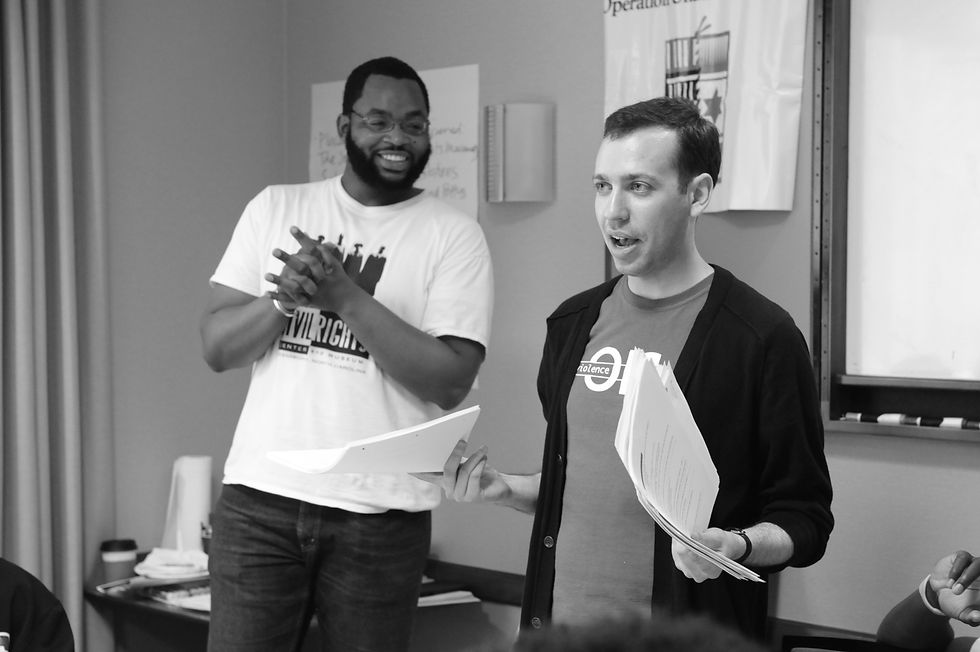The Two Pockets Dialogue Approach
Two Pockets Dialogue comes from an 18th century rabbi who was said to carry a note in each one of his pockets. In one pocket, the note said, “I am only dust and ashes.” In the other, it said, “The entire world was created for my sake.” I love the story because it reminds us that we are always carrying multiple truths that must coexist. And it challenges us to value our own richness and wholeness and also see the richness and wholeness in those around us.

My facilitation style is interactive and activity-based, which helps participants stay engaged and makes concepts come alive. I work to cultivate an environment of both support and challenge, where participants are affirmed for their participation, valued for their lived experience, and invited to consider concepts in new ways. I am able to comment on my own identities and privileges and share personal examples of failure, recognition, and growth. The dialogue environment feels like a community space, rather than a lecture.
Two Pockets Dialogue is a solo practice, though I also frequently collaborate and co-facilitate with a network of other educators and experts whose stories and areas of focus differ from my own.
My approach seeks to balance a few key concepts:
Dialogue
Dialogue is a tool that seeks understanding through empathic communication practices, a commitment to relationships, and thoughtful engagement around difficult topics. Meaningful learning about the forces that shape who we are and how we experience the world can’t be done by listening to a lecture. I believe that advancing inclusion, belonging, and justice requires us to foster relationships, engage in candid conversation, and practice deep sharing and listening. All of us, no matter our identities or roles in an organization, have valuable experiences to share.
Support and Challenge
The “learning edge” metaphor imagines a cliff. Most of us spend most of our time in our comfort zones away from the edge. Standing at the edge, though, is what changes your perspective on the world. One step too far, however, and you are no longer learning, you’re in free-fall. My goal is to move everyone closer to their learning edges by balancing support and challenge. Too much support, and people (and organizations) will stay stuck where they are. Too much challenge, and people (and organizations) will collapse in resentment and constriction.
Systemic Understandings
Justice-seeking work must explore the way oppression operates as a system in our world and in our communities. That means that good, well-meaning people can unknowingly contribute to keeping a bad system in motion. Understanding this need not provoke shame or guilt, but should motivate a sense of responsibility to create a more just communities and organizations.
Calibrating Change Efforts
It can be easy to pick the lowest-hanging fruit and pat ourselves on the back. It can also be easy to shoot for the moon and set ourselves up for failure when we remain earth-bound. My work encourages people to set ambitious goals, but also to be realistic about barriers to those goals. I lead participants to identify action steps and recommendations that are meaningful and yet achievable.
Finding Joy
It can be easy to get stuck in the heaviness of talking about identity and oppression. But joy is fundamental to building an inclusive environment where everyone can thrive. And joy, pride, and resilience inform our stories as much as anything else.

Avi speaking alongside a co-facilitator

Avi speaking to college students in Birmingham, Alabama

Avi leading a game for a group of teens who are seated in a circle

Avi speaking alongside a co-facilitator
